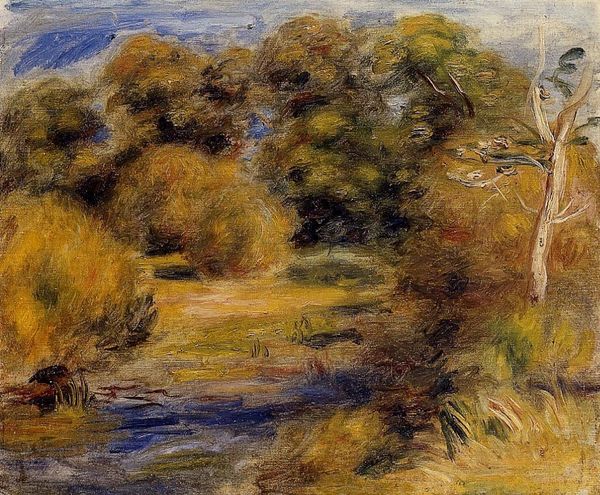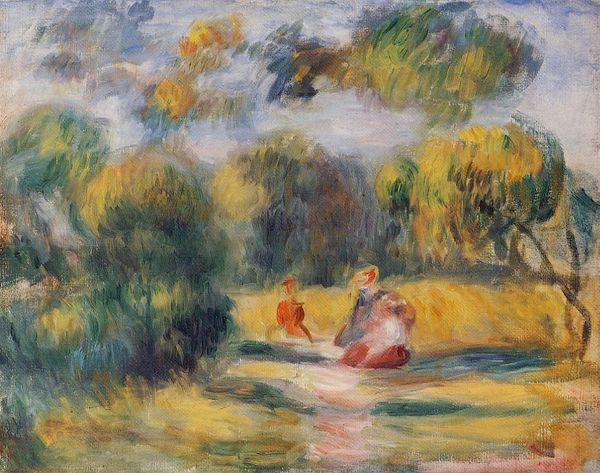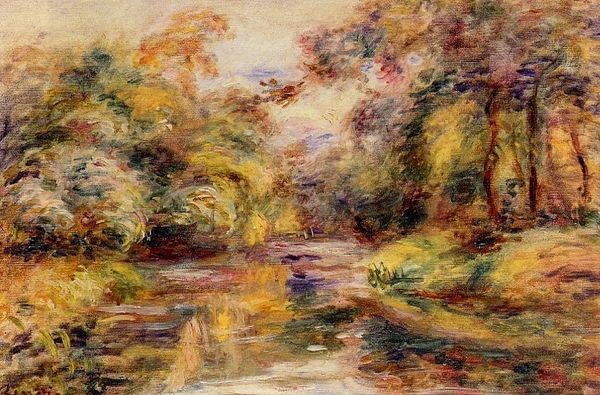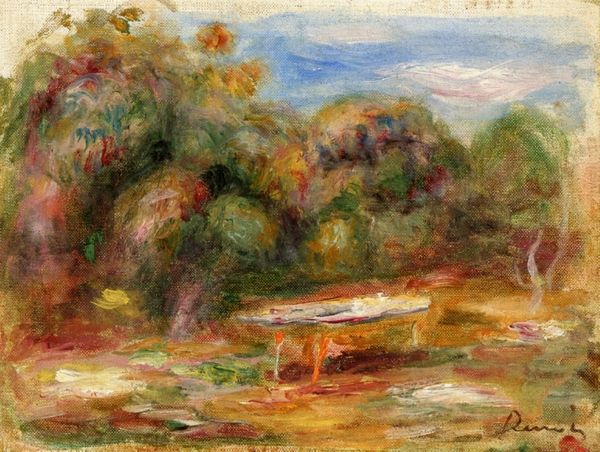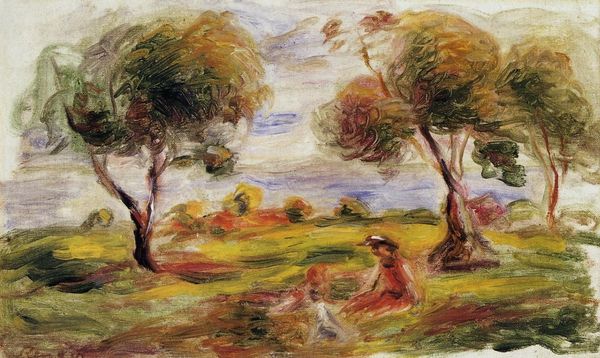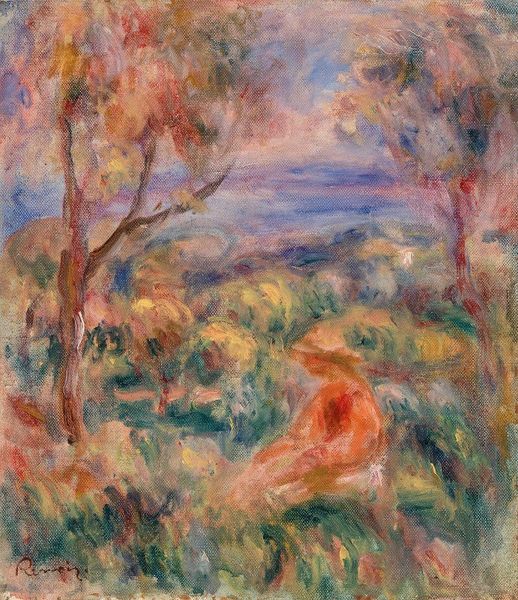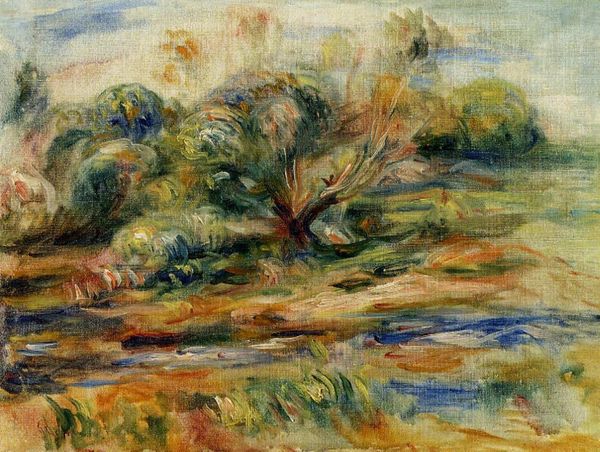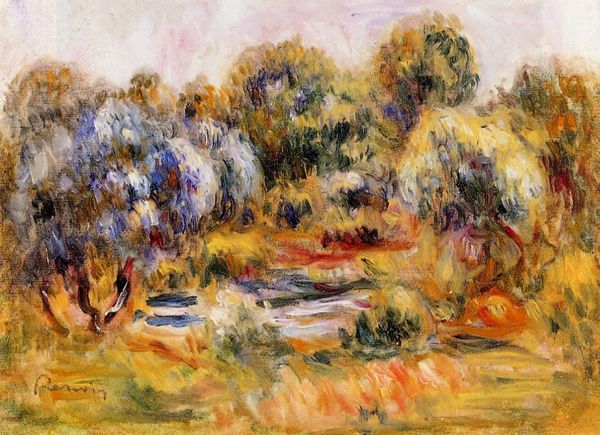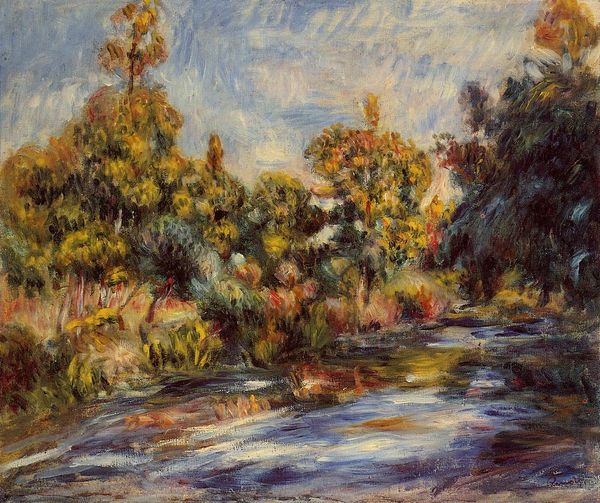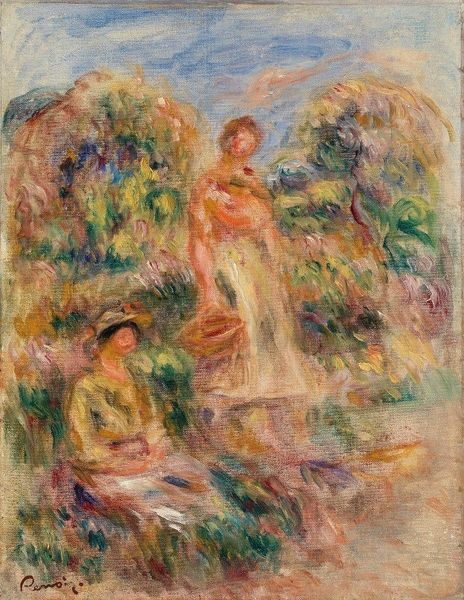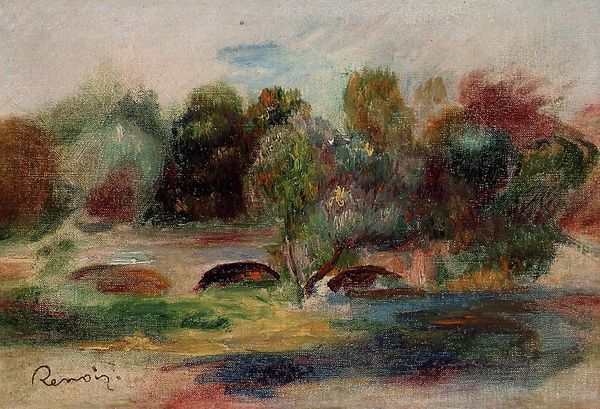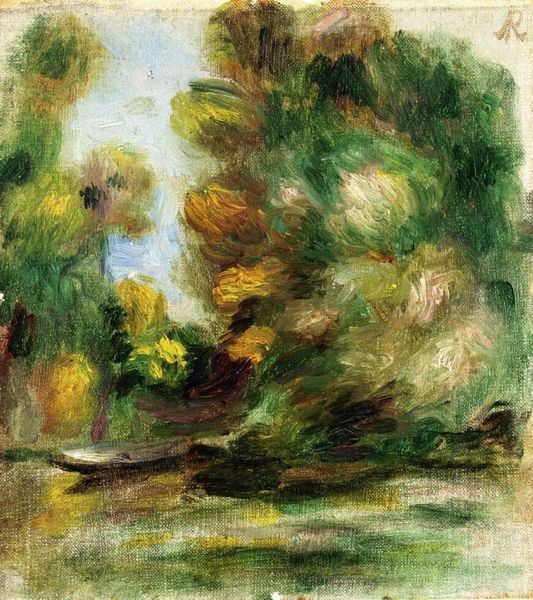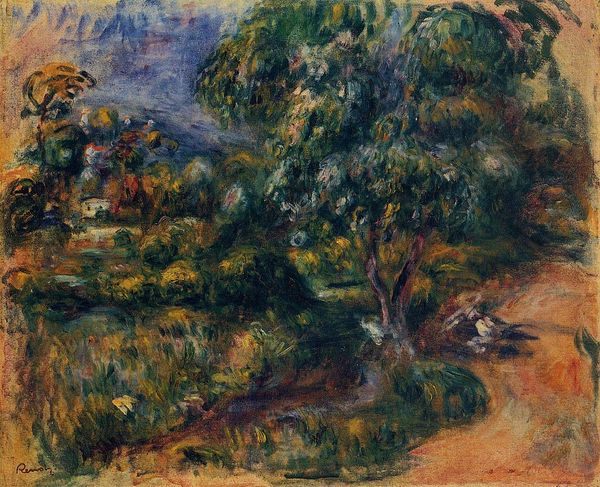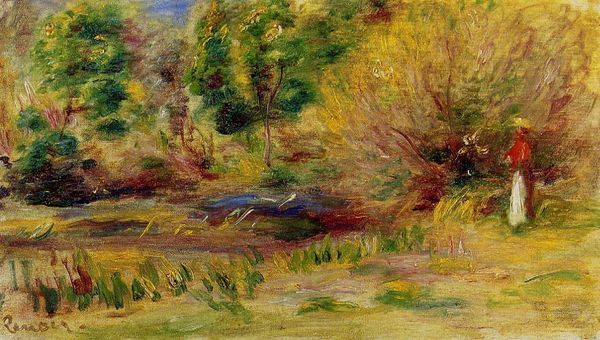
Copyright: Public domain
Editor: Here we have Renoir's "Cagnes Landscape," painted in 1908, with oil on canvas. The colors are soft, but there's also a strong, almost hazy light about it. How do you interpret this work? Curator: This piece speaks to the radical shift occurring in art and society at the turn of the 20th century. Renoir, though rooted in Impressionism, was pushing beyond it, almost grappling with his own established style. Consider the role of leisure in burgeoning capitalist societies – how is Renoir representing women in this landscape? Does he challenge or reinforce their traditional roles? Editor: That's an interesting question. She’s outside, but almost anonymously so, consumed by the landscape, and the haziness does somehow neutralizes her agency, doesn't it? Curator: Precisely. And that haziness, that dissolution of form, it's not merely stylistic. It’s a reflection of the changing social fabric, a questioning of rigid structures, gendered expectations in particular, in a society heading towards unprecedented upheaval. Where is her gaze directed? What kind of labor might she be involved in? It is perhaps, a subtle commentary on the expectations and confines of femininity. Editor: So, beyond just being a pretty scene, it's sort of encapsulating those social anxieties? Curator: Absolutely. Renoir’s landscapes aren’t simply pastoral escapes; they’re documents, albeit subjective ones, of a world in flux. Consider, too, the lack of distinct, patriarchal structures. Is Renoir perhaps offering an alternative, if subtly, to the existing social power structures? Editor: I never thought of Impressionism having such complex layers, with potential political readings. Curator: Exactly! By questioning art history’s canonized interpretations and bringing contemporary theory into the conversation, the visual arts speak directly to lived experiences, across identities and geographies. It shows how crucial artworks like this are, for fostering a dialogue. Editor: I will remember to not only look at the brushstrokes, but beyond it, in every work, moving forward. Thank you!
Comments
No comments
Be the first to comment and join the conversation on the ultimate creative platform.
